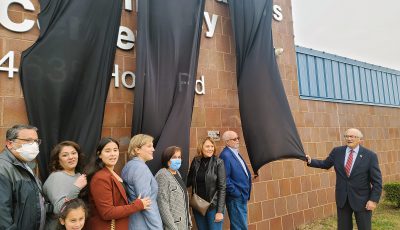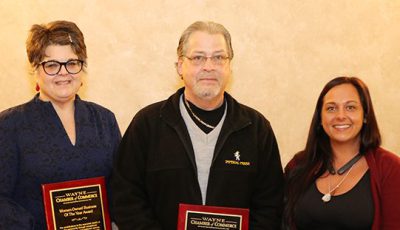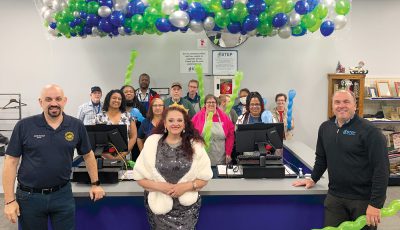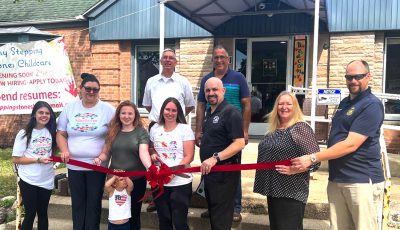“Have Gavel, Will Travel” justice comes to town
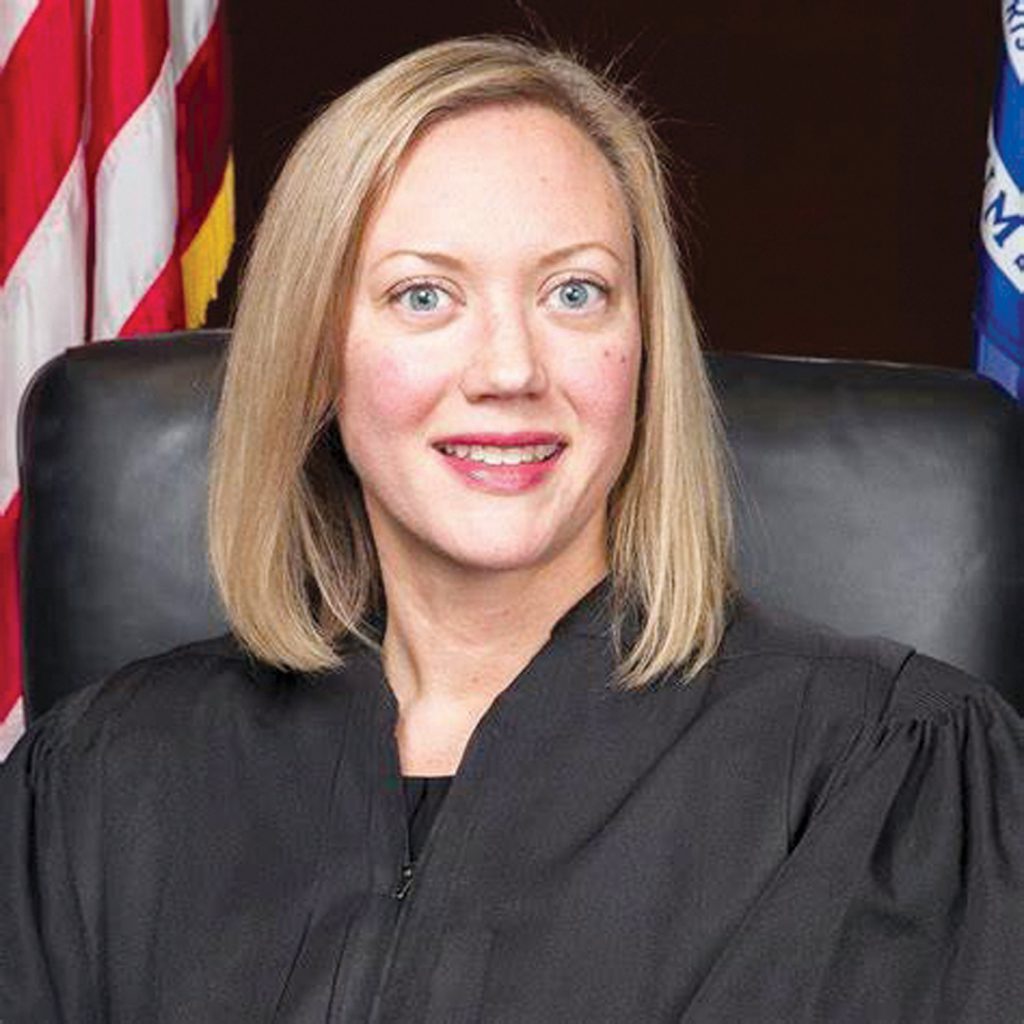
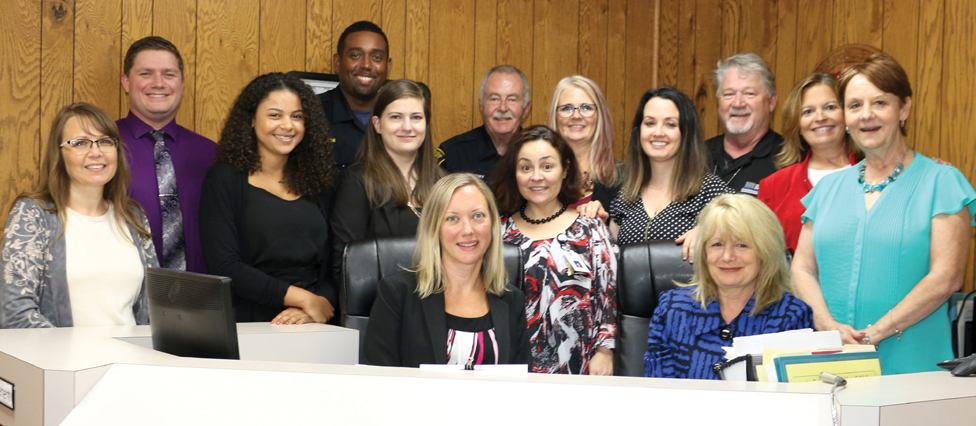
By Carolyn Marnon – “Have Gavel, Will Travel” found Michigan Supreme Court Justice Elizabeth T. Clement travelling from her home in East Lansing to the 29th District Court in Wayne August 14 and 15 to interact with people at the lower court level.
The new initiative “is focused on increasing engagement with the community so that public trust in our courts is supported by increased awareness and understanding of local issues and concerns,” reads the Michigan Supreme Court Resolution in 29th District Court Judge Laura Mack’s office. The Wayne court is one of the first courts in the state to participate in the program amongst the 242 trial courts in Michigan. This special program was started because justices at the Supreme Court level only interact with attorneys on cases, not the people involved. Two of Justice Clement’s colleagues were also disbursed to other courts across the state at this time to participate in the travelling gavel program.
“The three Justices have never served as trial court judges, so the experience will be invaluable to understand the day-to-day concerns judges see in their courtrooms, and to appreciate the critical work that is being done in courtrooms from Wayne County to Kent County to Marquette. ‘We are so pleased that the Justices are going to courts across the state to spend time meeting people, learning firsthand about how decisions are made, and helping families facing difficult life decisions,’ said Chief Judge Burton,” in a Michigan Supreme Court press release. Judge Freddie G. Burton, Jr. is the Wayne County Chief Probate Judge.
Judge Mack sat down with Justice Clement at the end of the first day after they had sat next to each other on the bench and heard cases through the Mental Health Court in the morning and landlord tenant issues in the afternoon. They reviewed the Thursday docket together which involved Traffic Court. “Most matters,” said Judge Mack, “take about five minutes.” The two anti-government cases that were last on the docket would probably take longer.
Justice Clement emailed after the Thursday court experience that she again sat with Judge Mack. She was able to handle several cases and make decisions on those cases. They involved arraignments, pleas, and sentencing where there was an agreement with the prosecutor.
“I was incredibly impressed with the work that Judge Mack and her team are doing with the Mental Health Court,” she wrote in her email. “I have had the opportunity to visit many of our mental health courts around the state and understand the difficulty working with participants. It requires passion and dedication from the judge and the entire treatment team, and it was very clear to me that the success of Judge Mack’s court is attributable to the amazing team she has in place. Problem-solving courts are not required and the judges that choose to offer a problem-solving court to the public take on a lot of additional work. It also provides an opportunity for the judge and team to be more involved in the cases. That is one of the main differences I personally saw between the first day and the second day when we handled city ordinance cases. We were able to spend more time with each individual during Mental Health Court compared to what was definitely a faster paced more routine docket the second day.”
“My experience with Judge Mack really educated me on the quick pace and flow of cases and while I was comfortable and able to hear and decide certain cases, Judge Mack and I conferred on each case before we called it to determine if there was anything unique or more appropriate for her to handle. For example, there were some cases that involved city ordinances that I was unfamiliar with or cases where there has been a longer history. Judge Mack knew the background and details of those, and it made more sense for her to handle that case. I heard and decided cases that involved plea deals or were dismissals and was able to sit on those cases myself. After having spent two full days with Judge Mack, I gained a better appreciation for the district court docket that she sees on a regular basis.”
Judge Mack was thrilled to be part of the program. “Trial court judges look up to Supreme Court Justices. They represent the highest rung on the justice ladder, and they sometimes are called upon to correct our legal mistakes. However, because of their lofty position as the head of the judicial branch, there is a perception that they are disconnected from the day-to-day operations of the court. When the Supreme Court reviews a case that has been appealed from a trial court like the 29th District Court, the Justices can only read a transcript of what was said at the trial. They don’t get to see the people testify; they don’t see their demeanor or their attitude. You can get a completely different ‘feel’ for a case if you see the trial in person versus reading the transcript. So this was a chance for a Justice to experience a typical district court in action. I believe this is the first time Michigan Supreme Court Justices have done this. I feel honored that our court, in our city, was chosen, and I think the people that came to court on those days felt honored as well. Some of the people thanked Justice Clement.”
“Our Justices care about the trial court judges. They want to truly understand what we do, our challenges and triumphs, and how they can help us,” continues Judge Mack. “More importantly, the Justices care about the people who come to court to resolve disputes or answer to criminal charges. They want to ensure that courts are treating people as they deserve to be treated: with dignity and respect, and that their cases are treated competently and carefully. This program reinforces the notion that all the state courts in MIchigan represent ‘one court of justice.’ Justice Clement’s visit energized and inspired me to do more in my court to make our justice system better.”
The two women met while at a court leadership conference that was held out of state several years ago and became friends. Justice Clement says she wanted to come to Wayne because she’s passionate about mental health and is a liaison in the mental health community. According to the Michigan Supreme Court website, “She serves as the liaison to the 188 Problem-Solving Courts in the state of Michigan, which include drug and sobriety, mental health, veterans, and other nontraditional courts.”
“You want your community to be strong and understand what the court is for and that they’ll be treated fairly,” said Justice Clement. “Mental health is a difficult population.”
Justice Clement attended Michigan State University on an academic scholarship and graduated in 1999 with a B.A. in Political Science. She graduated from Michigan State University College of Law in 2002 and was licensed to the State Bar of Michigan the same year. Since then, she has been a legislative aid to the Senate Majority Leader in the Michigan Senate; has owned and operated Clement Law, PLLC representing individuals and businesses in family law, adoption, probate, estate planning and criminal law; has served in the Senate Majority Policy Office; has served as legal counsel in the Michigan Senate; has been cabinet secretary, deputy chief of staff and deputy legal counsel in the Governor’s Office; and has served as Chief Legal Counsel for former Michigan Governor Snyder.
Justice Clement is the 11th woman to serve on the Michigan Supreme Court and the 113th Justice overall, having joined the Supreme Court on November 17, 2017 when she was appointed by former Governor Snyder. She was later elected in November 2018 to the 8-year term she is currently serving.
“If I had to pick only one highlight,” of the time she spent in Wayne on the Have Gavel, Will Travel initiative, “it would be the people I met in the Wayne District Court including the staff, security, lawyers, prosecutors, law enforcement, the mayor, district court judges from Westland, and especially the public. I was welcomed by everyone, had so many great conversations about what everyone’s background and jobs were, what makes Wayne unique and special, and most importantly the incredible passion every single person has for serving the public. Our district courts are the most frequent place the public interacts with the judiciary and from the second you walk through the door and Kevin (who handles security) greets the public, the staff at the front counter, the staff in the courtroom and the judge, everyone was treated with the service and respect they deserve. I am so proud of the hard work they do every single day and so grateful for the opportunity to spend time in Wayne.”
After her visit with our District Court, Justice Clement was headed to a Circuit Court in Kent County and then a Probate Court in Ingham County. Before leaving the courthouse for the day, she said “It’s nice to see the courts working together.”




